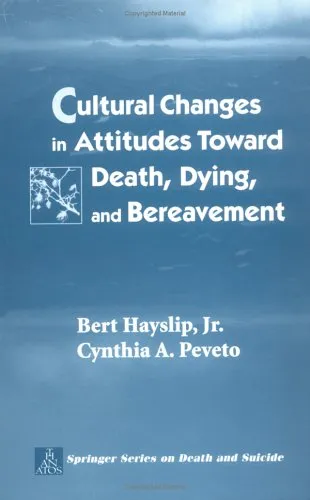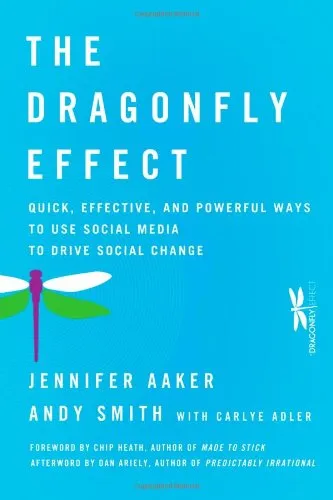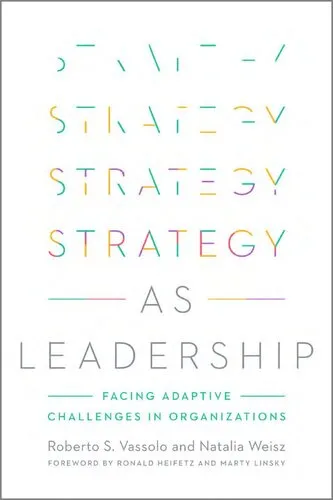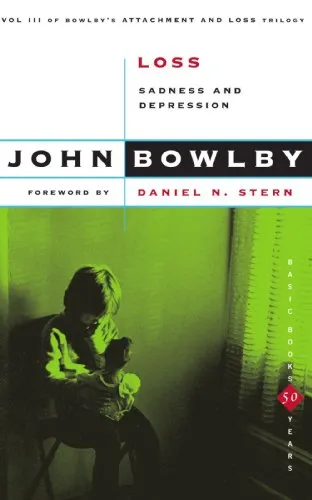Cultural Changes in Attitudes Toward Death, Dying, and Bereavement (Springer Series on Death and Suicide)
4.6
Reviews from our users

You Can Ask your questions from this book's AI after Login
Each download or ask from book AI costs 2 points. To earn more free points, please visit the Points Guide Page and complete some valuable actions.Related Refrences:
Introduction to "Cultural Changes in Attitudes Toward Death, Dying, and Bereavement"
The journey of understanding death is as complex as it is profound, interwoven with cultural narratives and personal beliefs. "Cultural Changes in Attitudes Toward Death, Dying, and Bereavement," part of the Springer Series on Death and Suicide, offers a comprehensive exploration of how these attitudes have shifted across time and cultures.
Detailed Summary of the Book
The book embarks on a scholarly journey, examining the rich tapestry of beliefs and practices surrounding death, dying, and bereavement across different civilizations. It delves into the historical context, exploring how various traditions have interpreted the inevitable end of life. This account is not merely historical but deeply analytical, providing insights into the psychological, sociological, and cultural dimensions that shape our attitudes toward mortality.
Through meticulous research, the book highlights how cultural rituals and societal norms have evolved, particularly in response to pivotal global events such as wars and pandemics, which often accelerate changes in how societies cope with loss and mortality. It addresses the shift from traditional to modern perspectives and the impact of technological advancements on our understanding and experience of death.
Key Takeaways
- Understanding the evolution of cultural attitudes toward death can provide crucial insights into contemporary practices and beliefs.
- Cultural changes are significantly influenced by historical events, technological advances, and shifts in collective consciousness.
- The study of death and dying is not only about mourning loss but also about celebrating the memory and understanding the legacies left behind.
- Bereavement practices vary widely across cultures and are deeply embedded in societal structures.
- The modern world sees a continuous blend of traditional and contemporary beliefs in coping mechanisms related to death.
Famous Quotes from the Book
"Death is the mirror in which the true meaning of life is reflected and understood."
"Cultural variance in death practices signifies not only diversity in ritual but also in ideology about life's end."
Why This Book Matters
This book is an essential read for scholars, practitioners, and anyone interested in understanding the profound impact of cultural perspectives on death and dying. It is a critical resource for those looking to deepen their comprehension of the mourning processes and how they are molded by historical and cultural contexts. By providing a broad overview and in-depth analysis, this book encourages readers to reflect on their personal beliefs and the societal structures that influence their understanding of death and bereavement.
Moreover, the book's relevance extends to various fields such as anthropology, sociology, psychology, and health care, where it serves as a pivotal educational tool. Understanding these cultural changes is crucial for professionals working with bereaved individuals from diverse backgrounds.
By bridging past and present perspectives, "Cultural Changes in Attitudes Toward Death, Dying, and Bereavement" challenges readers to think beyond their own cultural and temporal confines. It emphasizes the universal yet uniquely personal experience of death, encouraging a more empathetic and informed dialogue on the subject.
In essence, this book is not just a scholarly treatise but a guide for understanding and navigating the complex emotions and practices surrounding death, helping to formulate a more cohesive and compassionate approach to bereavement.
Free Direct Download
You Can Download this book after Login
Accessing books through legal platforms and public libraries not only supports the rights of authors and publishers but also contributes to the sustainability of reading culture. Before downloading, please take a moment to consider these options.
Find this book on other platforms:
WorldCat helps you find books in libraries worldwide.
See ratings, reviews, and discussions on Goodreads.
Find and buy rare or used books on AbeBooks.
1400
بازدید4.6
امتیاز0
نظر98%
رضایتReviews:
4.6
Based on 0 users review
Questions & Answers
Ask questions about this book or help others by answering
No questions yet. Be the first to ask!













